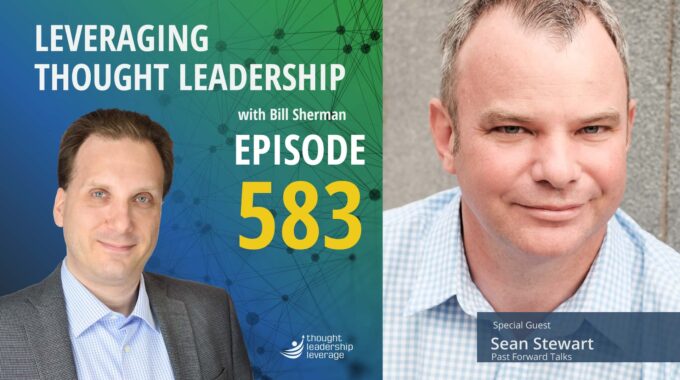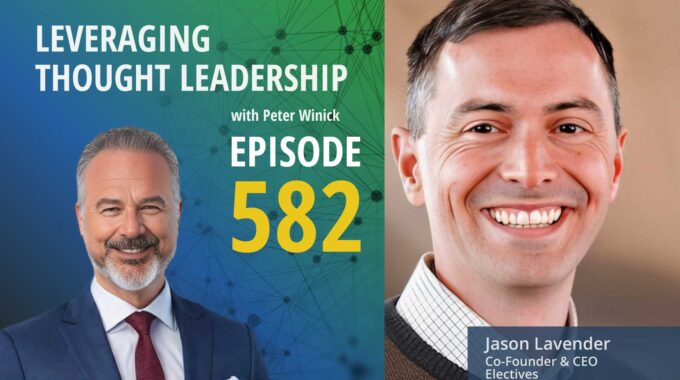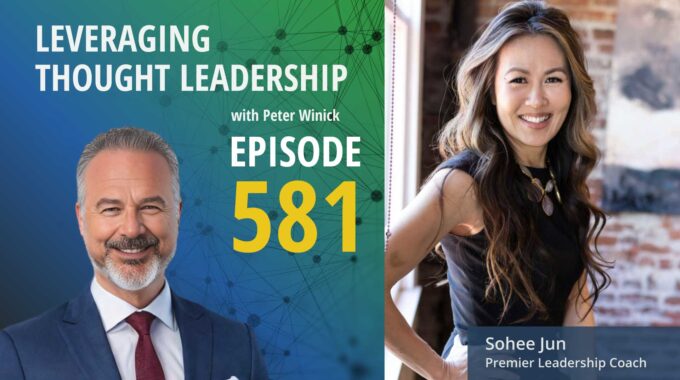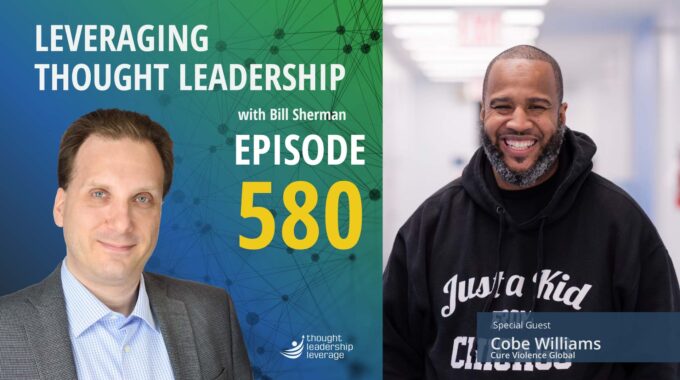Turning Everyday Objects into Tools for Effective Leadership A conversation with Sean Stewart on how…
Diversity, Equity, and Inclusion Deconstructed | Lily Zheng
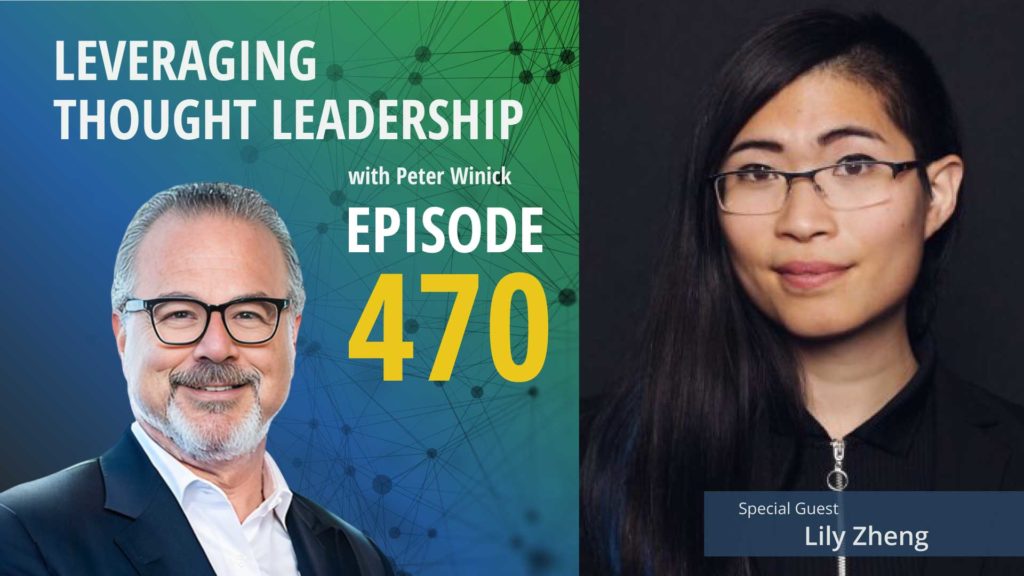
Understanding the importance of properly implemented DEI training.
An interview Lily Zheng about their work creating long-term solutions for companies with DEI problems.
Diversity, equity, and inclusion (DEI) are problems that require long term work in order to provide long term impact, yet companies often seek a quick fix and buy a flashy solution that just won’t work.
To understand the issues the industry is facing and the hard work that needs to put in we’ve invited Lily Zheng to join us.
Lily is a Diversity, Equity, and Inclusion speaker, strategist, and organizational consultant. Recently they wrote DEI Deconstructed: Your No-Nonsense Guide to Doing the Work and Doing It Right which is The definitive comprehensive and foundational text for critically analyzing and applying actionable DEI techniques and strategies,
With DEI being an ongoing issue it’s baffling to think of it as a subject that ebbs and flows with trends and new stories. Lily explains why this continues to happen and the dangers it poses to the long term success of DEI in the workplace. We learn that there are no short term fixes or hacks to solving the problem, only hard data and hard work can help change the way people think and act.
Lily further shares how they help companies to assess their workforce and understand what is going on beneath the surface. By collecting data on employee engagement, retention, promotion rates, and access to opportunity Lily is able to get a clear picture of the problems the company is facing and only then start to provide solutions for them.
With so few best-practices and many under developed strategies out there for DEI Lily took it upon themselves to literally write the book on DEI. They share how they hope the book will become not only a way for companies to hold themselves accountable but also to be a resource for budding practioners in the industry.
Three Key Takeaways:
- Complex problems don’t have quick fixes.
- Thought leadership is a way to up skill your audience allowing those who come to work with you to skip the baby steps and spend more time on the hard stuff.
- Data has to be the core of problem solving. You can’t provide a solution, when you don’t understand the problem.
If you need a strategy to bring your thought leadership to market, Thought Leadership Leverage can assist you! Contact us for more information. In addition, we can help you implement marketing, research, and sales. Let us help you so you can devote yourself to what you do best.

Transcript
Peter Winick And welcome, welcome, welcome. This is Peter Winick, the founder and CEO at Thought Leadership Leverage. And you are joining us on our podcast, which is Leveraging Thought Leadership today. My guest is Lily Zheng. Lily is a sought after diversity, equity and inclusion speaker, strategist and organizational consultant who specializes in hands on systemic change to turn positive DEI intentions into positive DEI outcomes for workplaces and everyone. And there is a book that Lily has authored that is DEI deconstructed your no-nonsense guide to doing the work and doing it right. And I could get into a long list of accomplishments, but I’m not going to do that. I’m just going to dive in.
Peter Winick Welcome, Lily. How are you? Hey.
Lily Zheng Hey. Great to be here, Peter. I am doing well.
Peter Winick Great. So you’re in a fascinating space, right? So let me just sort of set this up. It’s sort of high level. So in my work with authors, thought leaders, experts, etc., there’s always an evergreen element to their work and what they do. That is true regardless of what happened to the newspaper today or the stock market went up or it’s the Great Recession or whatever. But then there’s things that happen outside of their control that oftentimes will make their work more in demand, more intriguing or less so in some cases. And I actually falls into that bucket where there’s lots of things going on outside of your control that are making more and more people lean in, going, I don’t think we’re doing this right here. Or what you’ve been feeding us in the past is pretty, pretty terrible or not effective. So give me just let me touch on that for a moment, if you would.
Lily Zheng Absolutely. So, you know, the analogy that comes to mind is, you know, how you know how tsunamis work, where right before the big giant wave hits, all the water recedes and goes away. Right. So you see that seabed and then, of course, the tourists walk in and go like, oh, that’s the starfish. And then they get hit in the face with the 20 mile wave. Right now, it feels to me like, why is that? But all the time, every week, really, I say that because, you know, we can go back through the last few years and there are so many examples. Talk about COVID. When COVID happened, what was the first thing companies do? They slashed their DEI budgets, they ended their trainings, they closed their contracts. Right. There was just like, oh, we’re going to focus on the real stuff now, right? Not the fancy fun nice to haves where we’re going to focus on the need to have. And then what happened in 2020, the murder of George Floyd.
Peter Winick Exactly.
Lily Zheng Tsunami wave. Right. Suddenly everyone was saying, where are the DTI practitioners? We laid off. Come back, please help, please help. Now, this happened so many times. It happened when the Trump administration banned DEA trainings and the surge back. Right. Every single time there’s a, you know, race motivated police killing, DEA surges. Every time there’s a hate crime against agents, DEA surges, every time there’s a new report, every time there’s a new finding on discrimination against women, on disabled folks for queer and trans folks. Right. Like our industry is defined almost by this sort of constant push and pull of corporations saying, well, we don’t need that. That’s just fluffy. Nice to have. And then the world reminding everyone, Oh, yes, absolutely. We need this stuff. Right? We’d we even just started seeing it in the last couple of weeks. Again, companies are saying, well, a recession is coming. Yeah, but what are we going to do? We’re going to cut our DEI budgets. And it doesn’t mean it.
Peter Winick Is largely not largely, but a lot of it is optics because there’s a fear that a company can’t say, oh, look at all the lovely things that we’re doing, whether they’re actually impactful or not. And I think and maybe this is where you’re going, we’re now moving into this different level of DNI where it’s like, you know, and your interest. But it’s about the outcomes. Yes. Right. Not about teaching people that look like acts that they have to hire, people that don’t look like acts like that compliance training from the 1978 that has stuck around because it’s cheap, it’s cost effective. Nobody cared. Nobody was getting in trouble. But how do you make the connection to it being a strategic business driver? Because that’s where you get attention, right?
Lily Zheng Absolutely, absolutely.
Peter Winick Compliance and regulatory and all that sort of fun stuff.
Lily Zheng Right? So like I’ve been mentioning, DEI has been very trend driven over the last few years. And I think that’s a major weakness of it because what we want to be doing is consistent long term work that drives consistent long term impact, right? And every piece of research we see says that the short term flashy initiatives just. Failed or a waste of time there, a waste of money there, a waste of people’s patience. Right. And so what we need to be doing and there’s research that supports us from the business literature, there’s research that supports this from the sort of critical theory literature is we need to be engaged in these long term efforts to shift workplaces towards greater equity, greater inclusion, and, yes, greater diversity. And we haven’t been doing that because, I mean, hard work is hard, right? Unfortunately, it’s the biggest truism of the world. And all work worth doing is difficult. But companies don’t want that right. A lot of leaders I talked to are frustrated. They’re just saying we’re getting bad press. We need to do something quick. We can do something immediately. We need to bring in a practitioner.
Peter Winick Within the hack. Right. We let you know if you were to write an article five Things to Do for Every CEO to Cure their DI.
Lily Zheng Oh, I could get it published tomorrow if I want to do that. Yeah.
Peter Winick Yeah. Right. But actually do the work and change the way we think and the way we behave and the way we believe in the systems, processes, etc. is much harder. I want to shift for a moment, if we could, into sort of the business side of this. Right. You’re this is what you do. This is your practitioner. Give me a sense of the connection and the importance of the thought leadership that you put out into the universe to the overall state of your business. Right. Because obviously, maybe you’ll make some money on a book. That’s highly unusual, right?
Lily Zheng No one does that.
Peter Winick Yeah, exactly. Exactly. Prince Harry maybe, but doesn’t. But the importance of you putting out really thoughtful, high quality, maybe even controversial or contrary, whatever thought leadership and how that sort of feeds the business side for you.
Lily Zheng Hmm. That’s interesting. So for me, it’s never really been about a direct, you know, thought leadership to business pipeline. Maybe if someone is super cynical and looks at my business model, they could say that the idea has been that I want through my thought leadership to upskill everyone in DEI, because I want us to spend less time on the baby steps and more time actually working on the hard stuff. I think we spend a lot of time getting caught up in what I think are non-issues in the DEI space, right? Like what are the ten most inclusive words you can say to your colleagues of color? I don’t care. Like I don’t care, right? Like those lists change every day. So don’t pay me to talk about how inclusive the words.
Peter Winick Upskilling is a business, right? So and what I mean by that is, is that you’re making the case that the old ways of dealing with the AI are ineffective. I think that’s it’s an easier time than ever to make that case. I think it’s fairly obvious to anybody that sort of has their eyes open. But now if that means that I need to train, retrain, skill, upskill a subset of my population as an employer, whether it’s, you know, Gen X like me that came up in a certain world in a certain way, and now things have changed, whether it’s, you know, Gen Z, it doesn’t matter whether it’s certain functions that have issues with this. That’s a business that’s sort of the connection there. Right. So it’s you know, most organizations aren’t going to just say, read my book. How are you? Give me a sense of how you’re helping organizations do that, go through the changes that they need to go through to get to that upskilling?
Lily Zheng Sure. So to talk about my business, I focus on a few things. My main let’s say service is helping companies, mostly corporations, assess their workforce and to understand exactly what’s happening beneath the hood. And so I help them understand their employee engagement, their employee retention, their employees feelings of belonging, their promotion rates, their access to opportunity. And looking through all that data, I help them diagnose exactly what challenges are happening, right? So that it’s quite possible that I talk to clients and everything’s hunky dory and things are peachy and everything’s great. More often than not, I find that there are issues, right? I find that there are cultural issues, leadership issues. I find that certain departments are doing better than others. And then from there that data allows us to get to work, right? My entire thing is connecting problems to solutions, not just throwing solutions out into the ether and hope that people benefit from them. Right. Like data is at the core of everything that I do. So I help my clients collect that data, understand that data, and then take action based on it.
Peter Winick If you’re enjoying this episode of Thought Leadership Leverage, please make sure to subscribe. If you’d like to help spread the word about our podcast, please leave a five-star review at ratethispodcast.com/ltl and share it with your friends. We’re available on Apple Podcasts and on all major listening apps as well as at Thought Leadership Leverage dot com forward slash podcast.
Peter Winick So I love the data piece, because whether your domain expertise is DEI or something else, for many of you, have the thought leaders listening today. Often this approach to problem solving I love because a lot of times a client might come to you and say, You got a program for that. You’re going to like. What do you got for that, right? Say, Yeah, I got lots of programs for that, but we’re not. We haven’t yet connected and aligned around what the problem is, why it is what it is, and what the best way to solve it is.
Lily Zheng Exactly.
Peter Winick I think that as thought leaders, we need to hold ourselves to a higher standard and say, wait a minute, you wouldn’t go to your doctor and say, Hey, doc, my knee hurts. I’d like for you to replace it. No doctor practices would say, you’re right. I trust your opinion because you know your knee better than I do.
Lily Zheng But that’s what they do in DEI, right? That’s the state of the industry. And I’m. I’m not, you know, this isn’t the first time I’ve said this and folks who follow me will know it Like I am the first person to critique that, like the fact that our industry is more about selling solutions at times than actually understanding what problems they’re solving is going to be the end of us someday, right? Like if we don’t grow up, if we don’t mature as an industry and professionalize and standardize and become more effective in delivering services that work, that actually solve problems, that hold both our clients and ourselves accountable to creating the impact that we promised. And we’re all in deep trouble, right? Like, there’s only so long we can keep spinning our gears before people go. This is just a waste of everyone’s time, right? And a practitioner like, get out.
Peter Winick Well, and I think, you know, you’re on to something there from the standpoint of regardless of your domain experience, from a thought leadership standpoint, anytime something comes out. So like the great resignation was a thing that all of a sudden happened six or eight months ago, quiet, quitting, which we used to call being disengaged in the workplace. It’s just a rebranding.
Lily Zheng What’s to call it that?
Peter Winick Yeah, no, I’m saying the quiet everything.
Lily Zheng And now they’re coming up with, like, I don’t know, like. Like what is it, Quiet, quiet hiring or something.
Peter Winick Yeah. So, I mean, these are new names for old problems, right? So regardless of what it is, so. So where I was going is so, like, quiet. Quitting becomes a good big thing. Resignation work from home becomes a good thing. And all of a sudden, out of nowhere, everybody hangs a shingle and says, I’m a work from home expert in, you know, May of 2020. Really? What were you doing at the beginning of 2020? And I think that’s always the way the market is going to go. As people run to where they think there is opportunity, then they realize like, wow, it’s not as easy as they thought. And then they go back and then the true practitioners, like folks like you, are left to sort of bang your, you know, your hand on the table and say, no, this is not the way to solve this problem properly and to some degree call B.S. on a lot of the industry. Right. But to do that.
Lily Zheng So DEI is a really interesting space in that, you know, we have like many industries that are fledgling, lots and lots of new practitioners. There’s so many practitioners that have entered since 2020 that have just started doing this work. Now, it’d be really easy for me to say, Oh, all the new comers, they don’t know what they’re talking about. Industry.
Peter Winick Yeah, well, that’s what.
Lily Zheng We’re talking about, right? It’s not really fair to them. I think one challenge that we’re facing is that there is no way for new practitioners to get good at our work. Like I remember when I was a new practitioner, I had to go into companies and basically pretend to have more experience than I did to get people to give me a chance to actually gain experience to do this work. There’s no, you know, effective DEI certification. You can there’s a handful. Their effectiveness is kind of middling. There’s no DTI degrees, right? It’s just a bunch of people who care a lot about making better organizations. Some of us come from an organizational change background, some of us come from activism. Some of us come from education, learning and development. H.R. It’s just a it’s a hodgepodge of different levels of experience, different backgrounds, all coming together to try to make better organizations. And one thing i tried to do with my book is it’s not just a resource for companies to hold themselves accountable. It’s a resource for the industry. I want you know, what i what I have been doing over the last few years has been to build this body of learning and knowledge that anyone can tap into so that you don’t get that excuse of, well, I don’t know what I’m doing. Like, okay, everything all my LinkedIn is free like and I post multiple times a week and all of it like. There is no fluff, right? Like people are posting multiple times little. You’re giving away industry secrets. And I’m like, Good, right? Like all that. History needs this stuff. Like, pick it up, learn what you need to learn, and then get to work, right? Because we have stuff to do.
Peter Winick But I think that that path. Again, you know, when you look at some of the greatest business books ever written just by commercial sales, it takes seven habits of highly effective people. I don’t know what the date. I think it’s sold 40 million copies in the last 30 years.
Lily Zheng I would believe it.
Peter Winick Right. When you read that book, it’s not like what we’ve given you seven, there’s 15, but you got to pay for the rest. Everything’s in there. Everything’s really clear. So there’s this people that have this scarcity mindset. Well, if I put all my stuff out there, they won’t hire me. And it’s just total nonsense. Right. The more that you put out, there’s a subset of the universe that never would have been your client that could benefit from taking in and internalizing. Absolutely no of you work great. It doesn’t cost anything. Give it to them. And it actually increases the demand and it actually increases the need for your services to do the implementation, execution, whatever. I mean, most answers to most business problems can be found in a $25 book. The reality is the understanding of ideas is a big difference in implementing and executing them. Right now, at this moment in my organization, which is where your partner role.
Lily Zheng The how is infinitely more important than the what. And yet so much of our industry in DEI at least is hyper focused on the what. There’s so many businesses focused on like what to do, why you should care, right? Like how to have basic empathy. And I’m like, look, you know, I’m glad that you’re able to sell your 60-minute empathy building sessions, but like, I don’t want you to be in business. I’m sorry. Right. Like, there is actual work to do. And, you know, I want more of us to be focused on the actual hard elements of this work rather than just turning a quick buck on people’s ignorance over and over and over again, selling solutions that don’t work, and then turning around and selling the same solutions to the next person who asks for them. Right. Like that’s not good for the future of our industry and we’re seeing it in real time. Sometimes when you talk to employees and you say, We’re dear practitioners, they look at you and they say, I’ve taken five trainings and none of them did it right. So why, why should I care about you? Right. And like, we’re seeing this in real time, like this loss of trust in our industry. So either we get our act together, we become more accountable, more effective, or, you know, in five or ten years, practitioners will start saying, Hey, how come no one’s signing up for my class anymore? Right. Because. Because you conned all the people that that were willing to be conned. Right. And everyone’s seen through it. Like, I don’t want that to be how the industry ends.
Peter Winick No, I love and I think if you can’t get the work to a point where it’s observable changes in behavior, it’s just noise. It’s just and we don’t have the financial resources for it, the time, the energy, there’s so much that we all want to do in our days that we don’t want to do things that don’t lead to outcomes, that don’t have impact, that are just waste. I mean, there’s time to lounge on the couch and binge watch Netflix.
Lily Zheng Absolutely right. Why? Why go through a 90 minute hair pulling and unconscious bias training if it’s not actually going to fix anything? It just makes everyone miserable and pissed off when we can watch Netflix, right? Like, I would prefer to watch Netflix.
Peter Winick Yeah. I’m with you. Yeah. Well, on that note, this has been highly informative and I appreciate your passion and your dedication to sort of the not being afraid to call out what you’re seeing and getting folks to focus on the work and then sort of exploring the business models as well. So thank you so much. Really appreciate it.
Lily Zheng Yeah, thank you so much for having me.
Peter Winick To learn more about Thought Leadership Leverage, please visit our website at ThoughtLeadershipLeverage.com to reach me directly. Feel free to email me at Peter at ThoughtLeadershipLeverage.com and please subscribe to Leveraging Thought Leadership on iTunes or your favorite podcast app to get your weekly episode automatically.


